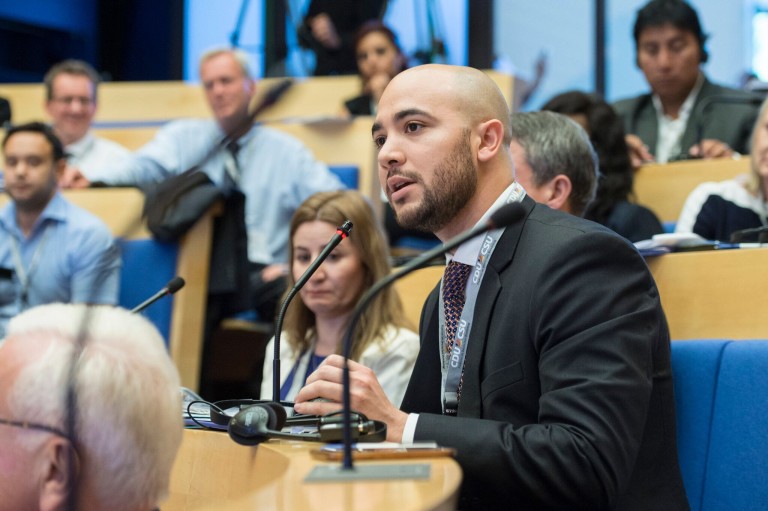Myanmar Reflections
As part of the IPPFoRB, I had the opportunity to visit Myanmar and engage in conversations with fellow members of parliament and civil society leaders regarding the status of freedom of religion or belief in the country.
As part of the IPPFoRB, I had the opportunity to visit Myanmar and engage in conversations with fellow members of parliament and civil society leaders regarding the status of freedom of religion or belief in the country. This visit was instrumental to show the Burmese government there is a global effort to help adopt democratic values and freedom in Myanmar.
Myanmar has historically had significant challenges with freedom of religion or belief, and that has a profound impact that crosses borders. For instance, Myanmar’s Rohingya ethnic group is harshly discriminated against, including the restriction of citizenship for them. This has led this minority group to migrate en masse to Southeast Asian countries and to other countries around the world. For example, from October 1, 2015 to September 15, 2016 alone, 11,902 Myanmar nationals were resettled in the United States as refugees, compared with 11,598 arrivals from Syria (figures from the Refugee Processing Centre, operated by the U.S. Department of State).
During our several meetings in Myanmar, civil society leaders raised many of the challenges religious groups face, alleging there is no freedom in their practices, leading to abuses and discrimination. On the other hand, many government officials explained how the government has made progress, such as the 2014 census, that will effectively inform the planning and decision-making processes, fostering the country’s political and economic transitions.
In my opinion, violations of human rights (including freedom of religion or belief) are a reflection of fragile democracies. For instance, in a solid democracy there is separation of powers, meaning that courts have the independence to work and make the rule of law prevail (that includes the protection of minority rights). In fact, the nature of most processes of selection of judges, as main actors of the judiciary, is not by popular vote, but by appointment; and the rationale behind this is that judges can take unpopular decisions as long as they are based on the law (e.g. protection of minority rights). Nonetheless, there is criticism on the degree of independence of the Supreme Court in Myanmar since retired military officers are being appointed to positions in the judiciary. In addition to the aforementioned, another challenge is that there is legislation in place in Myanmar that favours one religion (Buddhism) over the others.
It is important for leaders to take into consideration how violations of human rights and democratic ideals affect a country’s long-term economic and political success. Ongoing religious issues and persecution may translate into economic consequences such as a decreased inflow of capital/investments and the flight of a country’s talent to other markets. Additionally, multinational companies and large investors are taking human rights abuses into their investment decisions and will be hesitant to invest in a country where their assets, personnel, or reputation may be put at risk.
There is significant room for improvement in Myanmar, and it seems like change can arrive gradually if the society (including minority groups) is empowered, as well as if the recently elected government is committed to respecting human rights and pursuing a policy of integration and tolerance. Myanmar does not have to re-invent the wheel. There are many countries in the world that are compounded by different ethnicities, cultures and religions (e.g. Panama, Singapore); and live in peace. In fact, the religious diversity and tolerance can be a tool to promote tourism and investments. Also, successful multi-cultural societies are marked by successfully integrating people of diverse background, ethnicities, religions, etc.
Although the government has made some efforts, the progress has been limited and there are many reforms to be implemented. There are huge expectations about the path Myanmar will take under the new political leadership, and there is a tremendous opportunity for leaders such as Nobel Peace Prize holder Aung San Suu Kyi to bring change and leave a legacy that will be honoured by the world and future generations of Burmese. Last but hardly least, the IPPFoRB can provide support to the inter-religious peace process in the country; as many of us, from diverse beliefs/ religious backgrounds, are fully committed to peace, democratic values, and human rights.
Edison Broce Urriola is a 25 years old Panamanian lawyer and the youngest Member of Parliament – Diputado Suplente – in Panama. He possesses a Master in Procedural Law at Universidad Santa María La Antigua, Panama; and is currently awaiting his graduation from the Master of Public Policy at the Blavatnik School of Government of the University of Oxford, United Kingdom.
In the Panamanian Parliament, he has advocated for legislation that promotes the protection of both the youth and the environment. Also, he served as President of the Members of Parliament – Diputados Suplentes – of the Panama National Assembly (2014 – 2015).
Edison is the first ”Son of Democracy” (member of the democratic generation born after 1990), to be elected in office in the history of Panama.
MP Broce Urriola has been a member of the IPPFoRB since 2015 – International Panel of Parliamentarians that focuses on the protection of Freedom of Religion or Belief worldwide.

